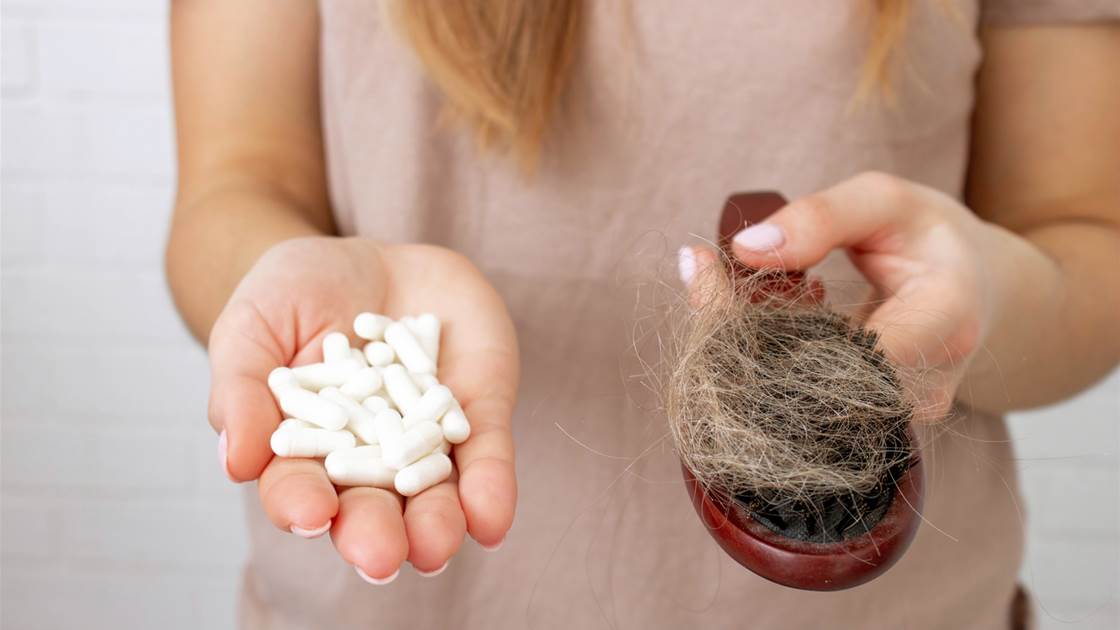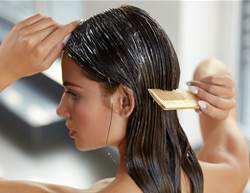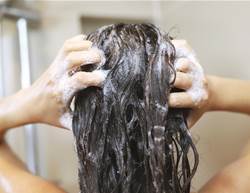It’s normal for hair to thin and lose some shine with age. While plenty of products promise to make hair grow faster or thicker, there’s no magic pill that can regrow what’s been lost. If you’re dealing with shedding or finer strands, targeted nutrition can help support stronger, thicker-looking hair, especially when a deficiency or high stress is part of the picture.
Why consider a hair-growth supplement?
Supplements can be useful for people noticing increased shedding, reduced volume or breakage, or for anyone whose diet or life stage may leave nutrient gaps.
Dermatology clinicians often suggest correcting low iron or ferritin, vitamin D, zinc or B12, as these are linked with hair shedding when levels are sub-optimal. Biotin deficiency is uncommon, so routine high-dose biotin is rarely needed unless advised by your GP.
Many hair formulas combine vitamins A, C and D, zinc, selenium and amino acids, plus botanicals like curcumin or ashwagandha. The idea is to support the hair cycle, calm stress pathways and provide building blocks for keratin.
Evidence varies by ingredient, but small clinical trials show that addressing deficiencies and improving overall diet quality can lift hair density and reduce shedding over 3 to 6 months. Hair grows slowly, so any approach needs time and consistency.
What does the research say?
Australian clinicians often prioritise testing and treating correctable causes first. If bloods show low ferritin, iron therapy can reduce shedding.
If vitamin D is low, restoring it may help as part of a broader plan. Where no specific deficiency is found, some people report cosmetic improvements with multi-nutrient formulas, though results are individual and not guaranteed. If you’d like specific guidance for your situation, speak with your GP or a dermatologist.
How to choose a supplement and when to skip it
- Match to your needs. If you’re plant-based, look for vegan-friendly options. Collagen is animal-derived, so choose an alternative if you avoid animal products.
- Dose and label. Avoid mega-doses unless prescribed. More is not always better.
- Check interactions. Curcumin, high-dose vitamin A and some herbs can interact with medicines like anticoagulants or thyroid medication.
- Life stages. Pregnancy, breastfeeding and perimenopause come with unique considerations—get individual advice first.
- Red flags. Rapid or patchy hair loss, scalp inflammation, new acne, irregular periods, sudden weight change or fatigue warrant a medical check to rule out thyroid issues, iron deficiency, PCOS or other causes.
Habits that help your hair
Supplements work best alongside healthy foundations:
- Protein at each meal to supply amino acids for keratin
- Iron-rich foods such as lean red meat, legumes and leafy greens with vitamin C to aid absorption
- Stress care — aim for regular movement, outdoor light and wind-down time
- Gentle styling — skip tight styles and harsh heat where you can
- Scalp care — cleanse regularly and treat dandruff early to keep follicles happy
- Patience — hair changes show up slowly because follicles work in months, not days
Bottom line
There’s no single tablet that restores lost hair, but for some people a well-chosen supplement can support thicker, stronger strands, particularly when a deficiency is corrected and lifestyle basics are in place. Start with a chat to your GP for blood tests and tailored advice, then choose a formula that fits your needs and give it at least three months.










